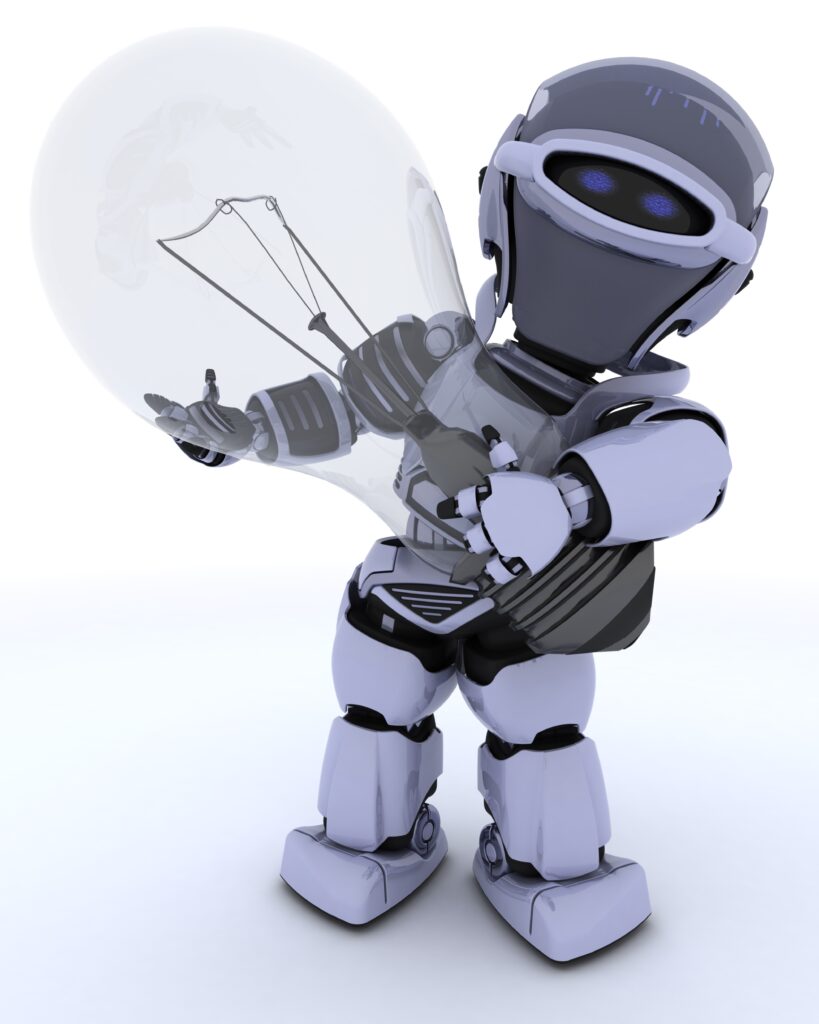Artificial Intelligence (AI) isn’t just a buzzword anymore—it’s transforming the landscape of digital marketing in ways we never imagined. From chatbots and personalized content to predictive analytics and automated campaigns, AI is no longer a tool for tech giants alone. It’s accessible, affordable, and a game-changer for businesses of all sizes.
If you’re an entrepreneur or marketer looking to stay ahead of the curve, understanding how AI is revolutionizing digital marketing is essential. Let’s dive into the exciting world of AI and explore how it’s reshaping the way brands engage with customers, optimize campaigns, and drive growth.

1. Hyper-Personalization with AI-Driven Insights
Gone are the days of generic marketing campaigns. Today’s consumers expect content and experiences that feel tailor-made for them. AI is unlocking the power of hyper-personalization by analyzing vast amounts of customer data in real-time, allowing brands to deliver highly relevant content and offers to individual users.
How it works: AI tools analyze customer behavior, preferences, purchase history, and even social media activity to create personalized recommendations, emails, and ads. This level of customization increases engagement and conversion rates because consumers feel like the brand truly understands their needs.
Example: Platforms like Netflix and Amazon are masters of AI-powered personalization, recommending shows, movies, and products based on user data. This strategy isn’t just for large corporations—small businesses can use AI to create similarly personalized experiences for their customers.
2. AI-Powered Chatbots for 24/7 Customer Engagement
If you’ve ever chatted with a customer service bot online, you’ve experienced AI in action. Chatbots have become a vital part of digital marketing, helping businesses engage with customers instantly, resolve issues, and provide information without the need for human intervention.
How it works: AI-powered chatbots use natural language processing (NLP) to understand customer queries and respond in a conversational manner. They can answer FAQs, schedule appointments, provide product recommendations, and even process transactions—all in real-time.
Example: Sephora uses a chatbot to recommend makeup products based on customer preferences. With AI handling customer queries, businesses can maintain a high level of customer satisfaction while reducing response times and costs.
3. Predictive Analytics: Foreseeing the Future of Marketing
Predicting consumer behavior used to be an art, but with AI-powered predictive analytics, it’s now a science. By analyzing historical data, AI can forecast trends, identify high-value customers, and optimize future marketing efforts.
How it works: AI tools analyze patterns in customer behavior, segment your audience, and predict who’s most likely to convert, when they’ll do it, and what products or services they’re most interested in. Marketers can then craft targeted campaigns that maximize ROI.
Example: A retailer might use AI to predict which customers are likely to make repeat purchases, allowing them to send timely, relevant offers to drive repeat business. Similarly, Spotify uses AI to predict and recommend music based on user habits, keeping users engaged longer.
4. Content Creation and Curation Made Easy
Content is king in digital marketing, but creating fresh, high-quality content regularly can be time-consuming and expensive. That’s where AI comes in. AI-powered tools can help marketers create, curate, and even optimize content at scale.
How it works: AI can write blog posts, generate social media updates, and even craft compelling headlines. It can also analyze user interactions with content to suggest topics that resonate with the audience, ensuring that brands always stay relevant.
Example: Tools like Jasper (formerly Jarvis) can help you generate content quickly, while Grammarly uses AI to improve the clarity and quality of your writing. These tools save time, reduce errors, and allow marketers to focus on strategy.
5. Automated Campaign Optimization
Managing and optimizing digital ad campaigns can be a full-time job. AI is revolutionizing ad optimization by automating the process and improving campaign performance in real-time.
How it works: AI analyzes data from ad campaigns (like clicks, impressions, and conversion rates) and makes adjustments to improve results. Whether it’s changing bid amounts, adjusting targeting, or recommending better creatives, AI can help you get the best results from your ad spend.
Example: Google Ads and Facebook Ads both use AI to automatically optimize campaigns. For instance, Google’s Smart Bidding feature uses machine learning to automatically adjust bids based on factors like location, time of day, and user behavior, ensuring you get the best cost-per-conversion.
6. Voice Search Optimization
With the increasing use of voice-activated devices like Amazon Alexa, Google Assistant, and Apple Siri, voice search is on the rise. Optimizing for voice search is crucial for staying visible in this growing space.
How it works: AI tools analyze the natural language patterns people use when speaking, allowing businesses to optimize their websites and content for voice searches. This includes focusing on long-tail keywords, conversational phrases, and local SEO.
Example: If someone asks, “Where can I find the best coffee near me?” AI-driven voice search optimization helps businesses appear in local search results, driving foot traffic to physical stores. Brands that optimize for voice are getting ahead of the curve.
7. AI-Driven Social Media Listening
Understanding your audience’s sentiment on social media is crucial for crafting the right marketing messages. AI-powered social media listening tools can monitor conversations and analyze sentiment, providing valuable insights into customer opinions and emerging trends.
How it works: AI analyzes posts, comments, and mentions across social platforms to track keywords, identify trending topics, and assess customer sentiment toward your brand. This helps marketers adjust their strategies and respond to customer feedback in real-time.
Example: Brands like Coca-Cola use AI-driven social listening tools to monitor conversations and identify potential issues before they escalate. If negative sentiment arises, they can quickly respond with proactive messaging or campaigns.
8. AI-Enhanced SEO
SEO is crucial for driving organic traffic, but keeping up with Google’s ever-evolving algorithms can be a challenge. AI is changing the way SEO works by automating many tasks and providing actionable insights.
How it works: AI tools analyze search engine algorithms, identify ranking factors, and optimize content for better visibility. AI-powered SEO platforms also track competitor performance, keyword trends, and backlink opportunities, ensuring your website stays at the top of search results.
Example: Tools like SurferSEO and Clearscope use AI to analyze SERPs and provide content optimization suggestions, ensuring your content ranks higher and drives more traffic.
Final Thoughts
AI is no longer a futuristic concept—it’s here and revolutionizing digital marketing in real-time. From hyper-personalizing customer experiences to optimizing ad campaigns and predicting trends, AI is empowering marketers to work smarter, not harder.
By integrating AI into your digital marketing strategy, you can unlock a world of possibilities—from automating tedious tasks to delivering customized, data-driven marketing that resonates with your audience.
So, are you ready to embrace the power of AI and transform your marketing efforts? The future is now, and it’s waiting for you to take the leap!

